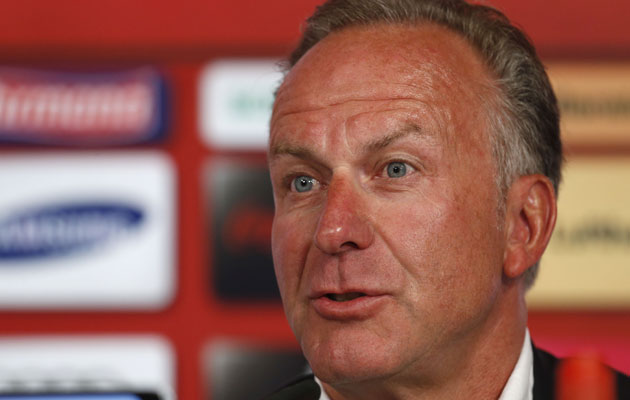FIFA and Europe’s clubs have reached an inflation-busting agreement to settle the ‘compensation’ row over players appearing at the World Cup finals in Qatar in 2022.
After last month’s recommendation that the finals in the Gulf should be switched to November-December – ratified yesterday by the world federation’s executive committee here – the European Club Association talked angrily of a need for a financial sweetener.
This has now been settled, for both Russia in 2018 and Qatar in 2022, at almost three times the sum paid out to Europe’s clubs for the use of their players at the finals in Brazil last year. Around 75pc of players at the finals are contracted to European clubs.
Statement from FIFA and ECA confirmed that $209m will be available for splitting among the clubs in 2018 and the same sum again in 2022. The clubs will consider the huge increase as compensation. However FIFA, which always rejected a direct pay-out for shifting the World Cup in 2022 out of the traditional June-July date, rejects this.
FIFA president Sepp Blatter welcomed the deal, which extends the insurance cover for players in international competition, saying: “We are taking a huge step forward in promoting relations between FIFA and the clubs in a spirit of mutual and constructive cooperation.”
Explaining the mechanics of the agreement, secretary-general Jerome Valcke said: “We had a few meetings and decided to extend this agreement again with all the clubs of the different confederations [so] we will not enter into additional negotiations after the World Cup in 2018. It’s the same amount as the sums paid the 209 national associations as per the financial assistance programme.
“It’s a very important thing for us to make sure we can work in a very good partnership with the clubs around the world who will be part of the success of the World Cup. It has nothing to do with the release of players and it is not compensation because it is an extension of the current agreement from the World Cups of 2010 and 2014.”
Karl-Heinz Rummenigge, the ECA chairman who is also ceo of Bayern Munich, was as effusive as Blatter about the deal achieved after what he described as “serious and fair negotiations.”
He added: “For the first time, the European clubs will have a direct say on the international match calendar, which was very important to me personally.
“As a result, the ECA will be actively involved and contribute constructively to the design of the calendar, especially for 2022 . . . From an ECA perspective, this agreement is a great achievement. It marks another milestone for club football as a whole.”
Clubs in the English Premier League, who were none too happy at the World Cup timing switch in 2022, may struggle to comprehend the nature of the “great achievement.”






